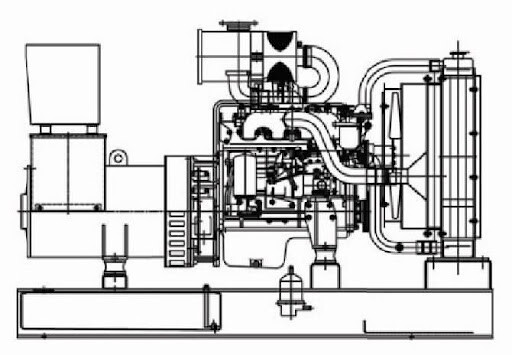Factors Influencing Frequency Stability in Diesel Generators
On this page
Diesel generator sets play a crucial role in converting the chemical energy of diesel into electrical energy, making them indispensable assets in modern societies. However, maintaining the stability of frequency in diesel generators is paramount for the smooth operation of power grids and equipment within them. In practical operation, the stability of the diesel generator frequency is often influenced by various factors, necessitating appropriate frequency adjustment methods.

During power supply to grids or loads, continuous fluctuations in load can lead to variations in generator speed and frequency. Increased load results in decreased generator speed and frequency, while reduced load leads to increased speed and frequency. Such load fluctuations pose challenges to frequency stability, thus necessitating adjustments in generator speed to maintain a stable frequency.
The quality and supply of diesel fuel significantly impact the performance of diesel generators. Poor-quality or inadequate fuel supply can cause a decline in engine performance, subsequently affecting the stability of generator frequency. Therefore, ensuring high-quality and stable fuel supply is crucial for maintaining frequency stability.
Environmental factors such as temperature, altitude, and humidity also influence diesel engine performance and, consequently, generator frequency. In high-temperature environments, reduced air density leads to decreased combustion efficiency and, hence, lower frequency. Conversely, in low-temperature and high-altitude conditions, increased air density enhances combustion efficiency, resulting in higher frequency. Therefore, adjustments in generator frequency are necessary based on prevailing environmental conditions.
Mechanical failures in diesel engines and generators, such as gear wear, bearing malfunctions, or governor failures, can also cause frequency instability. These failures result in abnormal engine speeds, thereby impacting the stability of generator frequency. Timely detection and repair of such mechanical faults are critical for maintaining frequency regulation.
To maintain frequency stability in diesel generators, speed governors or electronic control systems are commonly employed for frequency adjustment. Speed governors regulate engine speed by controlling the diesel supply, thereby ensuring stable generator frequency. Electronic control systems, on the other hand, adjust frequency by continuously monitoring generator frequency and adjusting internal parameters accordingly.
Ensuring stability in diesel generator frequency is essential for the smooth operation of power grids and equipment. By understanding the factors influencing frequency regulation and employing appropriate adjustment measures, diesel generators can reliably operate under various load and environmental conditions. This ensures the stability and reliability of power systems, contributing to overall energy security and efficiency.

